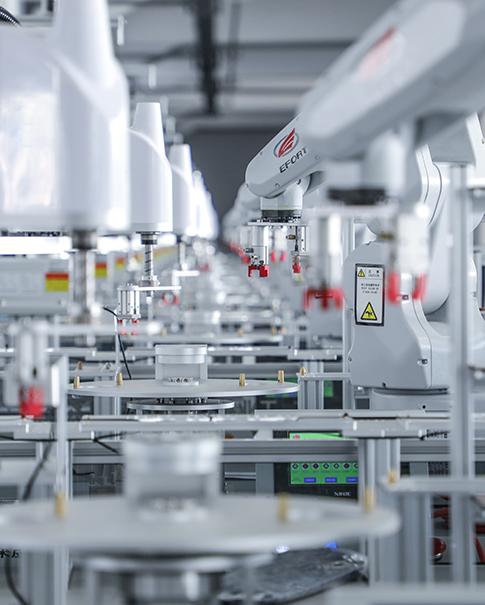New Trends in Industrial Connectivity: Cloud Computing Powers Smart Manufacturing
August 23,2025
As the global manufacturing industry enters the Industry 4.0 era, digitalization, networking, and intelligence have become the dominant themes of industrial development. In this process, cloud computing, as one of the core technologies, is becoming a key driver of the transformation to smart manufacturing. It not only provides powerful data processing capabilities but also provides solid support for enterprises to achieve flexible production, supply chain collaboration, and intelligent decision-making. Today, cloud computing is no longer the exclusive domain of internet companies but has penetrated the industrial sector, becoming the digital foundation for smart manufacturing.
Cloud Computing: The Core Pillar of Industrial Connectivity
Under traditional manufacturing models, enterprise data is largely scattered across local systems, creating severe information silos and leading to inflexible production scheduling and slow response times. The introduction of cloud computing has radically changed this situation. By migrating enterprise data, applications, and computing resources to the cloud, enterprises can achieve centralized data management and real-time sharing.
For example, in the production field, cloud computing can rapidly analyze real-time data such as temperature, pressure, and vibration collected by sensors in the cloud to predict equipment failures and optimize production processes. Furthermore, cloud platforms can seamlessly integrate with systems such as MES and ERP, enabling digital management of the entire process from order management to product delivery. This "data and business migration to the cloud" model is driving manufacturing companies towards intelligent and lean operations.
Cloud Computing Application Scenarios in Smart Manufacturing
In the field of smart manufacturing, cloud computing has penetrated several key areas:
Equipment Management and Predictive Maintenance
By uploading equipment operating data to the cloud and combining it with big data and AI algorithms, equipment failures can be predicted and maintenance can be performed in advance, avoiding unplanned downtime and reducing maintenance costs.
Quality Control and Traceability
Cloud platforms integrate production data and test results to achieve quality traceability throughout the product lifecycle, meet industry compliance requirements, and improve product reliability.
Personalized Customization and Flexible Manufacturing
Leveraging cloud computing power and intelligent scheduling systems, companies can quickly respond to personalized customer needs, implement small-batch, high-variety production models, and enhance market competitiveness.
Advantages and Challenges of the Industrial Cloud
Cloud computing offers significant advantages in smart manufacturing:
High Flexibility: Flexible resource expansion based on business needs reduces enterprise IT costs.
High Availability: Data redundancy and a distributed architecture ensure stable system operation.
Data-Driven Decision-Making: Cloud-based big data analysis and AI applications enable more scientific and efficient enterprise decision-making. However, enterprises still face challenges in adopting cloud computing, such as:
Data security and privacy protection: Industrial data leaks can cause significant losses, so enterprises must select cloud platforms with high-level security protections.
Network latency: Some real-time control scenarios have extremely high latency requirements, requiring edge computing to address them.
Insufficient standardization: Inconsistent interface standards between different vendors hinder system interoperability.
Future Outlook: Cloud-edge collaboration builds an industrial interconnected ecosystem
With the convergence of 5G, AI, and the Industrial Internet, cloud computing will unleash greater potential in intelligent manufacturing. In the future, cloud computing and edge computing will develop in tandem to achieve a "cloud-managed, edge-responsive" architecture, ensuring real-time performance while fully leveraging the computing power of the cloud. Furthermore, the continuous improvement of industry standards and security systems will lay a solid foundation for the widespread adoption of the industrial cloud.
It is foreseeable that cloud computing will not only be the digital pillar of Industry 4.0 but also a key engine for the innovative development of intelligent manufacturing. For manufacturing companies, seizing this trend will be key to future success.
 Network Supported
Network Supported